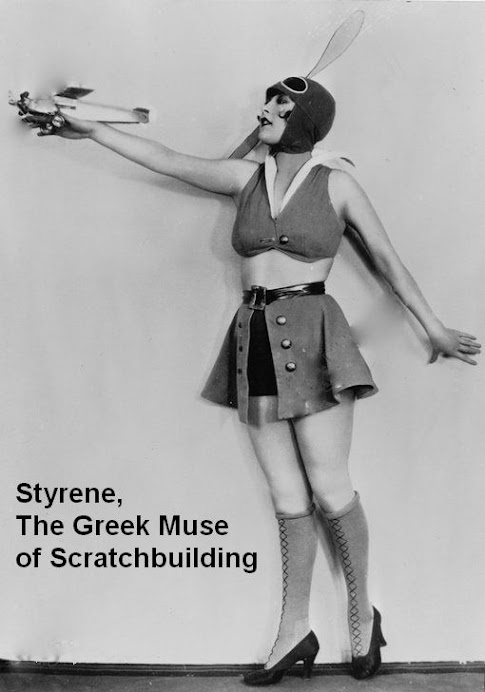This build started as a "rescue" kit that came to
me partially built, as explained in the step-by-step posting:
It is a companion of the recently-completed Lan Chile
Junkers:
My thanks once more to friend, fellow modeler and
Ornithopters' member Sönke for kindly donating the rescue kit.
My gratitude also to those who helped providing useful information
during the build, especially Günther Ott of ADL in Germany. Any inaccuracies in the
model are entirely my fault. Last but no least thanks to Mika Jernfors of
Arctic Decals, who warned me about the stagger of the seat rows and windows on
the original plane, and made a wonderful decal set for it.
At the beginning I planned to use it to try some tricks to
be applied to a new model (finished as a LAN Chile airliner), but I grew fond
of it in spite of the challenges it presented. To start with, Italeri made very
little effort to adapt the military boxing into the civil one, leaving many
grey areas and some serious mistakes to be fixed by the modeler.
I ended up correcting some of the inaccuracies of this old
kit and providing some additional interior, and commissioning a decal set for
it to be finished as VH-UYA, a machine that saw some limited service in Australia.
The most blatant mistake of the kit is that the two sets of
windows were staggered, the right side being ahead of the left, a fact ignored
by Italeri that takes a lot of time and some skill to correct.
I drew immense pleasure from the conversion of a machine of
sinister origins and use, into an airliner that is not wearing despicable
symbols, but instead had a good use, at least for a time, transporting
civilians and being useful for peace, not war.
VH-UYA presented some color challenges, as it the case when
assumptions have to be made based on available black & white photos and/or
vague, or generic descriptions. The color choices, which involved some degree of speculation, were adopted after
much consultation and study.
Unfortunately, for several reasons, it did not have a long
career in Australia.
Many sources repeatedly state engine issues for all Jumo 205-equipped planes.
This diesel engine apparently gave more than one headache to its pilots,
mechanics and users.
There is some anecdotal information on the Net about this
plane, so if you feel curious, do a search for the type and registration,
instead of me parroting here what its already out there.
This old kit as said is not very accurate and it is devoid
of cabin detail, having also raised panel lines, but the fit is quite good, and
the engineering uncomplicated, which is appreciated.
As many other old vintage kits, it can be converted into a
fair representation of the original withy some love and time. I would say that
skill required for this conversion is within the reach of committed modelers
that had already ventured into some kit-improving and detailing.
Provided you invest some research and effort, you can obtain
a large number of civil airliners from this kit. As stated in the building
article, Kora Models has some sets that cover a few of the possible choices
(not sure how accurate they are), but combining different releases of the
Italeri kit (radial, inline, short tailcone, long tailcone), and doing or
commissioning your own decals, you are also set for a nice ride if you are so
inclined.












































Very nicely done, Claudio, and I think more appealing with a splash of coulour than the all-aluminium schemes more often seen (not wishihng to detract from your other one at all!). Cheers, Mark
ReplyDeleteThanks, Mark!
DeleteI agree.
Another great Ju86 Claudio. And you will undoubtedly know it wasn't Hugo Junkers fault his company is now better known for the Stuka than for the Ju90 airliner....
ReplyDeleteThanks, Pedro!
DeleteAbsolutely, he paid dearly for his views. His dream was to unite the world with planes, not to bomb it with them!